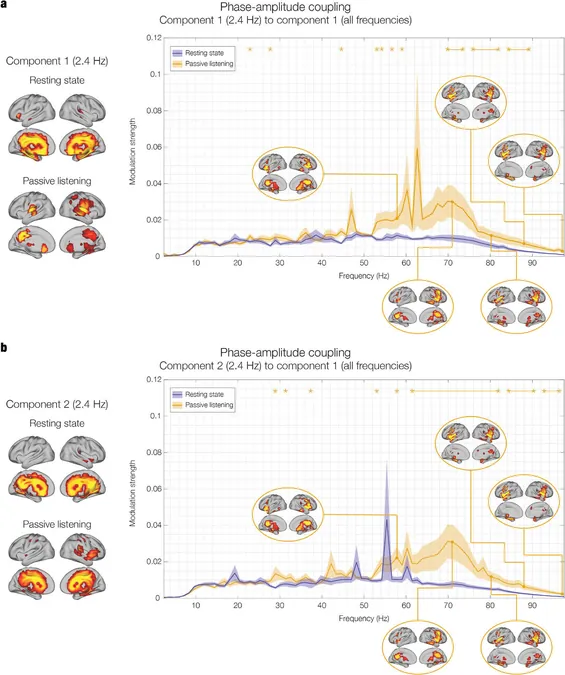
Unlocking the Rhythm of the Mind: How Sound Transforms Your Brain in Real Time
2025-06-02
Author: Charlotte
Ever wondered what goes on in your brain when you immerse yourself in music or a rhythmic beat? A groundbreaking study from Aarhus University and the University of Oxford reveals that your brain doesn't just process sound; it transforms itself in real time!
Every note, beep, and melody navigates its way from your ears to your brain, but the real marvel lies in how your brain reacts. According to this research published in Advanced Science, the brain dynamically reorganizes itself, harmonizing a complex symphony of brainwaves across various networks.
Introducing FREQ-NESS: A Game Changer in Neuroimaging
Led by Dr. Mattia Rosso and Associate Professor Leonardo Bonetti, this fascinating study introduced an innovative neuroimaging technique known as FREQ-NESS—short for Frequency-resolved Network Estimation via Source Separation. This cutting-edge method employs advanced algorithms to unravel overlapping brain networks by identifying their dominant frequencies.
Once a network is pinpointed by its unique frequency, FREQ-NESS tracks its movement throughout the brain, allowing researchers to witness how sound influences cerebral dynamics.
A New Era of Brain Mapping
Traditional views of brainwaves—alpha, beta, gamma—depict them as static stations, while anatomy appears to consist of segregated regions. However, Dr. Rosso reveals, "FREQ-NESS paints a much richer picture. Brain activity is inherently organized through diverse frequency activities, intricately tuned to both our internal states and the external environment. We've developed a methodology to map how each frequency resonates across the brain."
This revolutionary approach offers scientists a detailed blueprint of how the brain operates at large scales, breaking free from conventional methods that typically rely on predefined frequency bands. With its data-driven precision, FREQ-NESS unlocks new avenues for research in neuroscience, brain-computer interfaces, and clinical diagnostics.
A Rhythmic Impact on Consciousness
This study contributes to a vast and growing array of research that showcases how the brain's rhythmic structure influences everything from music cognition to attention and altered states of consciousness. As Professor Bonetti passionately asserts, "The brain doesn't merely react; it reconfigures. Now we have the means to observe this transformation!"
These revolutionary findings could redefine the way we explore brain responses to not only music but also broader phenomena such as consciousness and mind-wandering, thus deepening our understanding of human interaction with the world around us.









 Brasil (PT)
Brasil (PT)
 Canada (EN)
Canada (EN)
 Chile (ES)
Chile (ES)
 Česko (CS)
Česko (CS)
 대한민국 (KO)
대한민국 (KO)
 España (ES)
España (ES)
 France (FR)
France (FR)
 Hong Kong (EN)
Hong Kong (EN)
 Italia (IT)
Italia (IT)
 日本 (JA)
日本 (JA)
 Magyarország (HU)
Magyarország (HU)
 Norge (NO)
Norge (NO)
 Polska (PL)
Polska (PL)
 Schweiz (DE)
Schweiz (DE)
 Singapore (EN)
Singapore (EN)
 Sverige (SV)
Sverige (SV)
 Suomi (FI)
Suomi (FI)
 Türkiye (TR)
Türkiye (TR)
 الإمارات العربية المتحدة (AR)
الإمارات العربية المتحدة (AR)